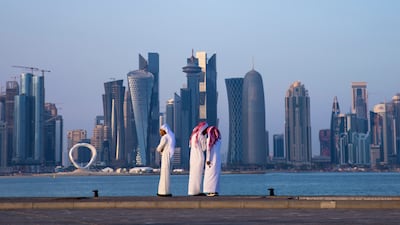Qatar has been admitted to the US Visa Waiver Programme, US officials announced on Tuesday. This will allow Qatari citizens to travel to the US for tourism or business for up to 90 days without first obtaining a visa.
“Qatar has been an exceptional partner for the United States, and our strategic relationship has only grown stronger over the past few years,” US Secretary of State Antony Blinken and Secretary of Homeland Security Alejandro Mayorkas said in a statement. “This is further evidence of our strategic partnership and our shared commitment to security and stability.”
The statement added that Qatar's participation in the programme increases information-sharing regarding one of the world's busiest travel and transfer centres, strengthening US security.
The country presented “a significant, whole-of-government effort” to meet the programme requirements, the statement said. Qatar is the first Gulf country to enter the programme.
“Qatar’s fulfilment of the stringent security requirements to join the Visa Waiver Programme will deepen our strategic partnership and enhance the flow of people and commerce between our two countries. Qatar’s entry will make travel between the United States and Qatar safer, more secure, and easier for both Americans and Qataris,” Mr Blinken said.
Qatari citizens will be able to fill out an Electronic System for Travel Authorisation application that allows countries in the Visa Waiver Programme to travel to the US without a visa.
Americans are already able to travel to Qatar without a visa but starting on October 1, they will be able to stay in the country for up to 90 days.
The programme builds comprehensive security partnerships between the US and designated countries that meet strict requirements related to counter-terrorism, law enforcement, immigration enforcement, document security and border management.
These requirements include that the country has a rate of non-immigrant visa refusals, issues secure travel documents, extends reciprocal entry privileges to all US citizens and works closely with American law enforcement and counter-terrorism authorities.

